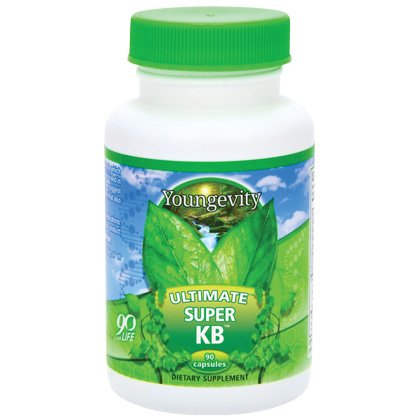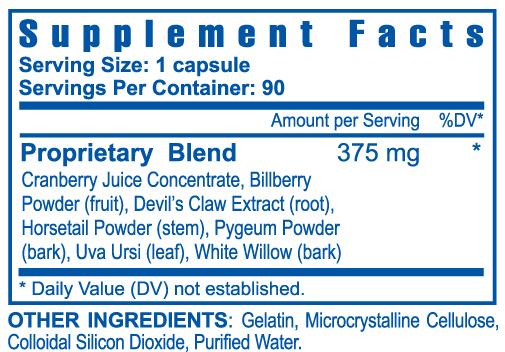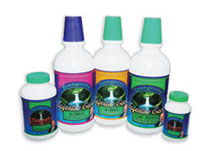

| BIOMETRICS | BEYOND ORGANIC | BLOOD/SUGAR | PROBIOTICS | DETOX | EFA's | |
| MULTI VITAMINS | MINERALS | JUST VITAMINS | INTEGRIS | SHAKES | SOZO PRODUCTS | FREELIFE |

Ultimate Legacy Super KB - 90 capsules
Cranberry is most commonly used for the prevention and treatment of urinary tract infections (UTIs). Cranberry is also used for kidney stones, neurogenic bladder (a bladder disease), to deodorize urine in people with difficulty controlling urination, to prevent urine catheters from becoming blocked, and to heal skin around surgical openings in the stomach that are used to eliminate urine. Some people use cranberry to increase urine flow, kill germs, and reduce fever. Some people use cranberry for type 2 diabetes, chronic fatigue syndrome (CFS), enlarged prostate, common colds, flu, heart disease, memory, metabolic syndrome, ulcers caused by Helicobacter pylori (H. pylori), scurvy, inflammation of the lining around the lung (pleurisy), and cancer. in foods, cranberry fruit is used in cranberry juice, cranberry juice cocktail, jelly, and sauce. How does it work?
Bilberry is a plant. The dried, ripe fruit and leaves are used to make medicine. Bilberry is used for improving eyesight, including night vision. In fact, during World War II, British pilots in the Royal Air Force ate bilberry jam to improve their night vision, but later research showed it probably didn’t help. Bilberry is also used for treating eye conditions such as cataracts and disorders of the retina. There is some evidence that bilberry may help retinal disorders. Some people use bilberry for conditions of the heart and blood vessels including hardening of the arteries (atherosclerosis), varicose veins, decreased blood flow in the veins, and chest pain. Bilberry is also used for chronic fatigue syndrome (CFS), hemorrhoids, diabetes, osteoarthritis, gout, skin infections, gastrointestinal (GI) disorders, kidney disease, and urinary tract infections (UTIs). It is sometimes applied directly to the inside of the mouth for mild mouth and throat soreness. How does it work? Devil’s claw is an herb. The botanical name, Harpagophytum, means “hook plant” in Greek. This plant, which is native to Africa, gets its name from the appearance of its fruit, which is covered with hooks meant to attach onto animals in order to spread the seeds. The roots and tubers of the plant are used to make medicine. Devil’s claw is used for “hardening of the arteries" (atherosclerosis), arthritis, gout, muscle pain (myalgia), back pain, tendonitis, chest pain, gastrointestinal (GI) upset or heart burn, fever, and migraineheadache. It is also used for difficulties in childbirth, menstrual problems, allergic reactions, loss of appetite, and kidney and bladder disease. Some people apply devil’s claw to the skin for injuries and other skin conditions. How does it work? Horsetail is a plant. The above ground parts are used to make medicine. Horsetail is used for “fluid retention” (edema), kidney and bladder stones, urinary tract infections, the inability to control urination (incontinence), and general disturbances of the kidney and bladder. It is also used for balding; tuberculosis; jaundice; hepatitis; brittle fingernails; joint diseases; gout; osteoarthritis; weak bones (osteoporosis); frostbite; weight loss; heavy menstrual periods; and uncontrolled bleeding (hemorrhage) of the nose, lung, or stomach. Horsetail is applied directly to the skin to treat wounds and burns. There have been reports of horsetail products being contaminated with a related plant called Equisetum palustre. This plant contains chemicals that can poison cattle, but toxicity in people has not been proven. How does it work? Pygeum is a tree. The bark is used as medicine. Pygeum is used for treating symptoms of enlarged prostate (benign prostatic hyperplasia, BPH) and prostate cancer. It is also used for inflammation, kidney disease, urinary problems, malaria, stomachache, fever, and to increase sexual desire. How does it work? Uva ursi is a plant. The leaves are used to make medicine. Bears are particularly fond of the fruit, which explains its Latin name, "uva ursi,” which means "bear's grape." Most authorities refer to Arctostaphylos uva-ursi as uva ursi. However, the related plants, Arctostaphylos adentricha and Arctostaphylos coactylis, have also been termed uva ursi by some experts. Uva ursi is used primarily for urinary tract disorders, including infections of the kidney, bladder, and urethra; swelling (inflammation) of the urinary tract; increased urination; painful urination; and urine that contains excess uric acid or other acids. Uva ursi is also used for constipation and a lung condition called bronchitis. Uva ursi, hops, and peppermint are also used in combination to treat people with compulsive bedwetting and painful urination. How does it work? Willow bark is the bark from several varieties of the willow tree, including white willow or European willow, black willow or pussy willow, crack willow, purple willow, and others. The bark is used to make medicine. Willow bark acts a lot like aspirin, so it is used for pain, including headache, muscle pain, menstrual cramps, rheumatoid arthritis (RA), osteoarthritis, gout, and a disease of the spine called ankylosing spondylitis. Willow bark’s pain relieving potential has been recognized throughout history. Willow bark was commonly used during the time of Hippocrates, when people were advised to chew on the bark to relieve pain and fever. Willow bark is also used for fever, the common cold, flu, and weight loss. Salicin, the active ingredient in willow bark, seems to have contributed to the death of the composer, Ludwig von Beethoven. Apparently, Beethoven ingested large amounts of salicin before he died. His autopsy report is the first recorded case of a particular type of kidney damage that can be caused by salicin. How does it work?
|

Doctor Joel Wallach and his Pig Pack Formula can be for those that are one of the 20 million Americans who has listened to Doctor Wallachs "Dead Doctors Don't Lie! - the audio tape by Dr. Joel Wallach, BS, DVM, ND, The Mineral Doctor? Doctor Wallach has advocated that this formula may comfort those with artthritis pain and associated joint problems. Pig Pack Formula from Youngevityy has made ordering the products for the Pig Pack Formula much easier. You can buy all those products at one time. Included in the pig pack is 2 Majestic Earth Minerals #13203, 2 Majestic Earth Ultimate Tangy Tangerine #13221, 1 Ultimate Gluco Gel #21251 and 1 Ultimate E.F.A. #20641 . Look also at our
Liquid
Gluco Gel with MSM,
Glucosame Sulfate, Chondroitin Sulfate, Cetylmyristoleate, and
Collagen Hydrolysate. Check out Liquid
Osteo fx an easy way to get your 1200mg of Daily Calcium
with MSM and Glucosame Sulfate.

|
||



